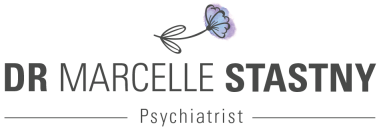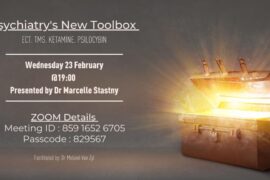I have seen my patients with OCD tortured by intrusive thoughts. Violent images, contamination fears, magical thinking, taboo thoughts; their brains find a million repetitive ways to torture.
In an attempt to control these thoughts, to prepare against the potential outcomes of these intrusive obsessions, my patients often have neutralising behaviours. They compulsively wash, or pray, or create symmetry, or count, or avoid a letter of the alphabet. Any action to try to reduce the anxiety. These behaviours add to the problem. Patients end up late because their clothes have to be “just right”. Or lonely because they fear contamination and can’t have meals with their families. The distress from the compulsions adds to the torture from the obsessions.
These patients are often highly functional. They are married, have families, have jobs. But they hardly notice the joys that the world offers because they are so wrapped up in the Ferris wheel in their heads.
What is OCD?

OCD was one of the first psychiatric disorders in brain scans that showed abnormal brain activity in specific regions. It has strong genetic origins but is also influenced by life stressors and personality. There have even been links with autoimmune triggers from infections like Streptococcus.
So, in summary, many things can cause OCD. It probably has a combination of causes. At its root, it is an anxiety disorder. It definately affects the “wiring” of the brain. It results in suffering.
How do we treat OCD?
OCD is notoriously hard to treat. We consider it a win if we can push it back far enough to make the symptoms “tolerable”. Even when we have remission, it often flares up in stressful situations again.
But, like all mental illnesses, there is always hope. The brain is resillient and wants to find ways to function optimally. Sometimes we just have to get a bit creative to help it find ways to create other pathways and to heal.
The gold standard for treating OCD is a combination of therapy and medication.
CBT (cognitive behaviour therapy) has effectively been used to challenge the underlying beliefs of OCD. CBT treatment is usually short term, with long term benefits. The aim is to manage anxieties by staying grounded in reality and avoiding ritualising.
The medication found to be most effective is the SSRIs (serotonin reuptake inhibitors). However, medication doses needed for OCD are often higher than for other anxiety disorders. This can cause frustration because at higher doses, there are more side effects.
The value of dTMS (deep Transcranial Magnetic Stimulation)
As our understanding of the neurobiology of OCD grows, additional treatment options become available and should be thoughtfully integrated into the treatment algorithm. One such option is dTMS.
dTMS works by directing electromagnetic fields that excite or inhibit areas deep inside the brain. It is entirely non-invasive and performed in an outpatient setting, with no need for hospital gowns or anaesthesia.
Clinical trial results show that daily dTMS treatment for 6 weeks results in a statistically significant 30% reduction in symptom severity as measured by the Yale-Brown Obsessive-Compulsive Scale. This magnitude of response is on par with responses seen in SSRI treatment; however, dTMS may achieve these results faster. Many SSRI studies demonstrate similar responses but only after 8 to 12 weeks.
At the 10-week follow up, the response rate to dTMS increased further. Moreover, this positive effect continued over time, even once the stimulation had ceased.
Where to get TMS in South Africa
I am excited to offer TMS to patients in Cape Town through my Rewire TMS Clinics www.rewire.co.za. I have added deep TMS to the services provided to help alleviate OCD suffering.




1 Comment
Hi Attie
Unfortunately medical aids are not paying for TMS yet